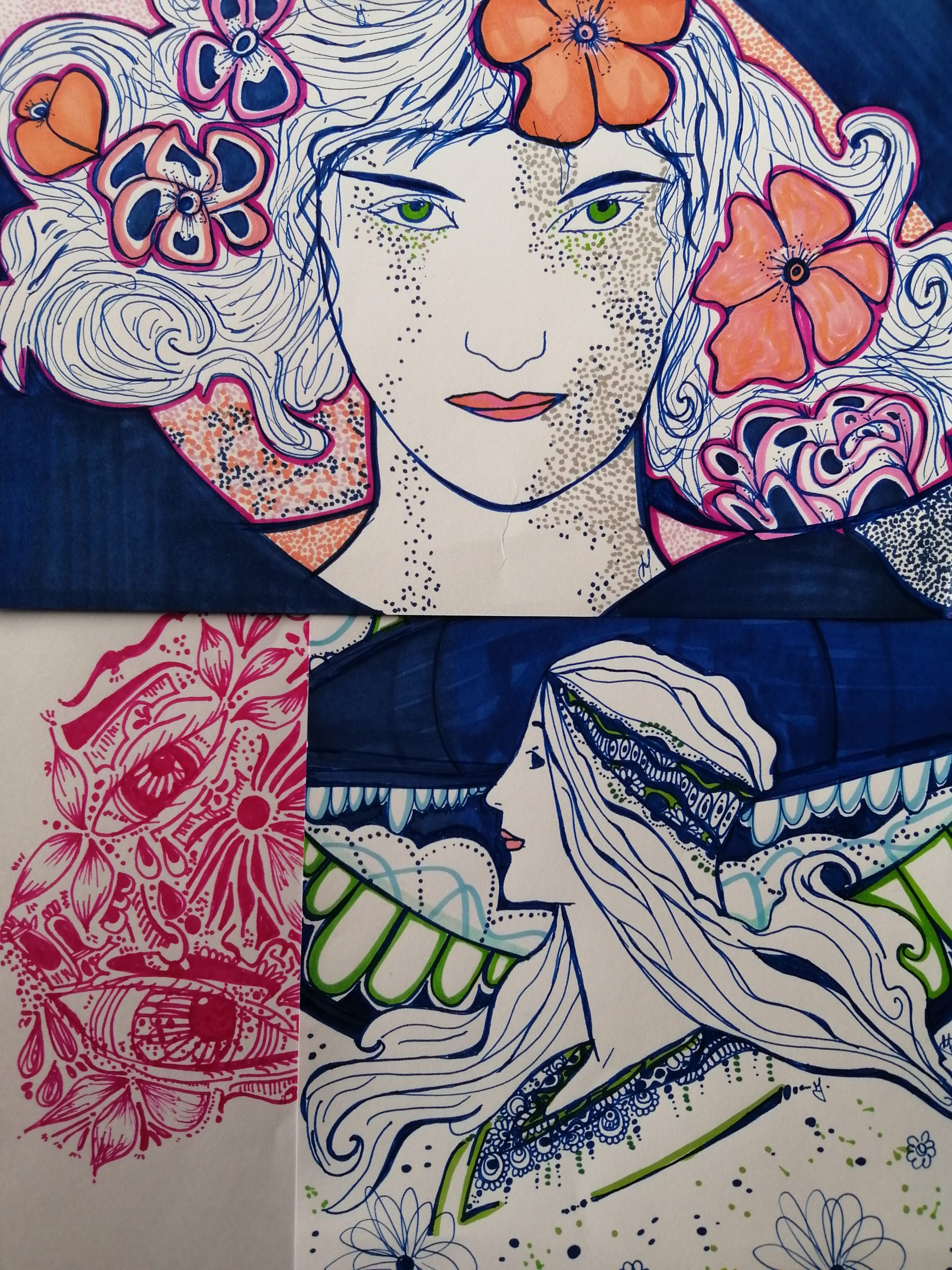a gaze into reality
[Written and Image by Martina Porru (she/her)]
Copy Editor
Find Martina on Instagram at @martiporru and her art account @gazediary
Learning how to speak to yourself, how to dialogue and dive into your own fears and wishes is a daunting path: do you really want to know the root of your preoccupations right now? Denial and secrecy make everyday life a little easier. Introspection, being self-aware not only of who you are but also what your own mind is going through, challenges your views about your relationship with the world systematically and uncomfortably. It’s about analysing your emotions, especially the ones you don’t want to confront. At least that’s how I felt when I realised that what I used to call “talking to myself” was working wonders for the improvement of my mental peace. A tempting and threatening step into feeling more like myself.
I always thought of myself as a self-aware person, even as a child, I was always conscious of how interactive I was with my own thoughts and feelings, but as I grew older I realised I needed to get one step further and actually understand my emotions, what I was going through at the moment, more genuinely. In fact, I am sure we all think we know ourselves enough, but how honest are we truly with our selves? Yes, our selves, as in our individual self, our cognitive and emotional reality.
In fact, introspection entails an understanding of your feelings, actions and choices that goes beyond the superficial and at times artificial comprehension of ourselves that we tend to choose due to being easier to accept. Introspection is learning to be vulnerable with yourself, probably one of the hardest realities to accept. In fact, it is not a coincidence that the definition of “introspection” is deeply rooted in the idea of inspection, observation and the examination of something, there’s an analysis that needs to be done through introspection that has a systematic connotation to it: it’s a methodical journey of discovery. In fact, we don’t want to see ourselves as “weakened” by emotional damage or insecurities, thus we, at times, don’t acknowledge any of those perspectives, we don’t want to discover or examine something we hide deep into our minds. However, starting to address them will make us stronger: I know what is causing me to feel a certain way and thus, it can’t be used against me. It’s the awareness that creates strength.
Especially in times of uncertainty and change, introspection can be your strongest asset. Acknowledge your sadness, call it for what it is: is it nostalgia? Homesickness? A feeling of loss? Acknowledge your happiness: is it excitement? Joyfulness? Satisfaction? In a dictionary, these words are synonyms, but when experiencing them in the mind and the body, they are slightly different, they spark different reactions. Sadness and happiness, for example, are useful words, but at times not specific enough to practice introspection. Why am I sad? Why am I happy?
Some may find my focus on happiness equally to sadness as unnecessary or even irrelevant, however, being aware of positive feelings and emotions (thus, not only your body reactions to an event but also your mental awareness of it) is just as important as acknowledging negative ones — we love stories, books and films, that depict sad and happy moments because they feel real, your introspection should feel and be the same in order to be balanced and to give you peace.
In fact, as an assiduous reader, I found that a good place to start your own path of introspection is to analyse other selves and characters: what’s their emotional state? Are they aware of their actions and choice? I can’t even recall how many times characters made me furious because they did not know what they wanted, what they truly desired and consequently what they were really feeling.
How would your favourite story be different if the main character were to practice introspection? How would their actions and your reactions to them be different if they were more self-aware? If only Mrs Dalloway left her convictions behind and actually listened to her own thoughts, part of her active passivity would not feel so consequenceless. If only Frankenstein understood the deeper essence of his desires, maybe his Creature would have been different. If only Jay Gatsby told himself how the past was keeping him away from actually accessing reality, maybe his life wouldn’t have ended so abruptly, so close to grasping the life he always wanted. If only Dorian Gray approached his fear of being forgotten and of aging introspectively, perhaps he wouldn’t have fallen into the trap he was never going to be ready to fall into. If only all these characters that we tend to describe as “delusional” and “stubborn” understood their deeper selves, maybe their stories would be different.
If only they opened an honest dialogue with themselves, maybe, in all truthfulness, their narratives would not be intriguing enough as, surely, this is part of their appeal as fictional characters: how they approach (or not) their introspection makes them more real. However, they are not an example of how to live with emotional balance, but simply a representation that I believe can be improved in our everyday, a starting point, an inspiration for desiring a deeper, more honest, self within us.

